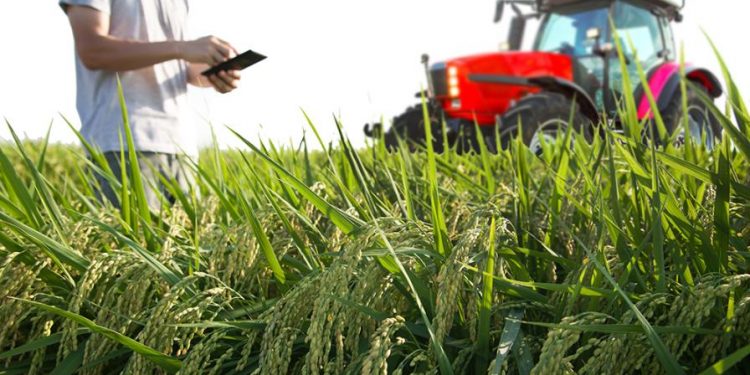Michael Kremer and Gilbert F. Houngbo
The COVID-19 pandemic is reshaping societies around the world, in part by accelerating the digital revolution that was already underway at the year’s beginning. Corporations have instituted mass teleworking. International gatherings now take place online, students learn remotely, and digital payments are further edging out cash.
But with technology influencing our lives more than ever, there is a risk that it will spread unevenly, entrenching existing inequalities and leaving the world’s poorest people further behind. That is not inevitable. Digital technologies can help end global poverty and hunger faster, including in rural parts of developing countries, where the majority of people earn their living from agriculture.
Digital agriculture – whereby farmers use mobile phones and other digital technologies to access customised, actionable agricultural information in real-time – could revolutionise how these communities secure and improve their livelihoods. By making the right investments today, while many agricultural extension officers are restricted from visiting farmers in person, we can kick-start digital adoption and start to close the income gap that has long held rural areas back. It should go without saying that family farmers need timely, accurate information as much as any small enterprise does. That is why governments in developed and developing countries have for decades supported farmers with public information campaigns. The world’s longest-running radio drama, The Archers, was created in the 1950s to help farmers increase agricultural productivity following the rationing and food shortages during World War II.
Today, most farmers in the world’s remotest places have mobile phones, and thus are equipped to receive targeted advice through simple text or voice messages, even without access to the Internet. For example, in Odisha, Precision Agriculture for Development delivers customised, crop-specific, free agricultural advice to almost 800,000 farmers through their phones.
There is extensive, rigorous evidence that such advisories – delivered at scale and low cost – can change farmers’ practices for the better. There is also growing evidence to show that farmers who are empowered with digital information will increase their yields, incomes, and resilience against shocks. A recent paper co-authored by one of us (Kremer) in Science demonstrates that farmers who received digitally delivered recommendations were 22 per cent more likely to adopt the recommended agrochemical inputs, yielding $10 in benefits for every $1 spent.
Moreover, while farmers rely on mobile phones to receive market information, access bank accounts, and monitor weather forecasts, digital technologies offer a host of other opportunities for poor, rural communities. With support from the United Nations International Fund for Agriculture Development, remote sensors have been deployed to help farmers optimise water and fertilizer levels for their crops, and drones are being used to identify plants in poor health so that remedial action can be taken.
Innovations in digital agriculture also can help farmers increase their yields and incomes by adopting locally suited seeds and fertilizer, protecting crops from diseases and pests, adapting to climate change, selling at best possible price, and accessing financial services. All of these applications can expand farmers’ opportunities and reduce their risks.
In fact, digitisation has the potential to transform the agricultural sector in developing countries. But doing so will require further innovation and strong partnerships between governments, businesses, and farmers, as well as a regulatory environment to ensure technology remains affordable and accessible.
With the pandemic still running its course, now is the time to think about not just building back, but building forward. By accelerating investment and innovation in digital agriculture, we can protect the world’s poorest people from some of the worst effects of the current crisis. When we all emerge from lockdown, one hopes we will have already laid the foundation for building a fairer, more prosperous, and sustainable future.
Michael Kremer, a Nobel laureate in economics, is Professor of Economics at Harvard University. Gilbert F. Houngbo, former PM of the Republic of Togo, is President of the United Nations International Fund for Agricultural Development. @Project Syndicate.






































